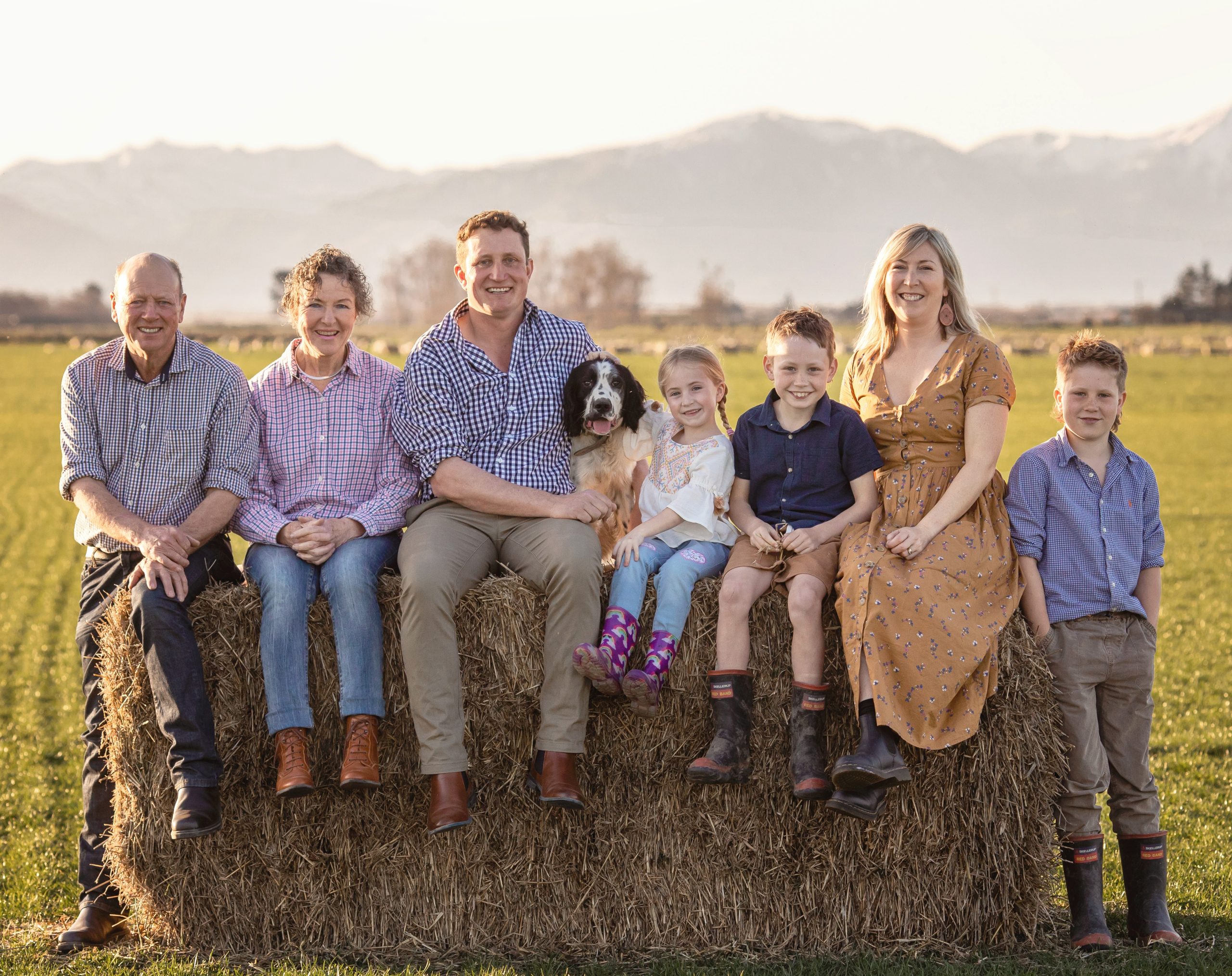-
Shop
-
Learn More
-
About
The First Light Venison Producer Group is a small group of farmers that specialise in producing young red deer. We pride ourselves on the quality of the animals and the venison we produce - success is the smile we get when someone tries our venison and discovers how tender, healthy and delicious it is.

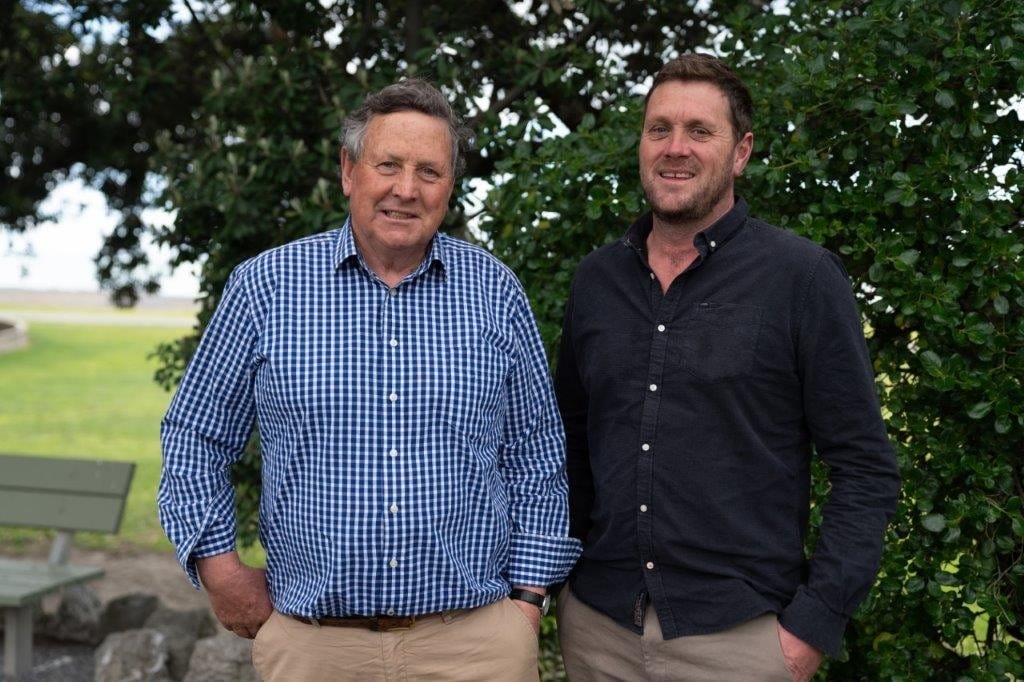
First Light Wagyu ticks all the boxes for fifth generation Maniototo farmer James Herlihy.
“We hope to year-in, year-out increase the number of Wagyu calves. We’re in it for the long haul,” he says. He and wife Cate have two dairy farms and a beef finishing/support block at Patearoa near Ranfurly in Central Otago, including about 800ha of crops and cultivars under irrigation. They have 1600 dairy cows plus replacements and Cate rears 400 beef calves every year; the majority of them are Wagyu. Through the use of fresh sexed semen, they hope to put more of the dairy herd to Wagyu to get better quality Wagyu calves earlier.
“If you want to get the higher marbling scores and the value that brings, you have to be prepared to take them to at least 28 months. There is extra value to be had if you’re patient. You can’t make a rough job of it; you can’t cut corners; you have to do them properly. They’re a valuable animal,” says James.
“If you want to do it easy, just run bulls. But if you want to do something that’s more rewarding, consider Wagyu.”
He says it’s satisfying to have a top line of Wagyu behind the wire.
“They’re hilarious; they’re as tame as a cat,” he says, smiling. ““To move them, they’ll follow you or your truck from paddock to paddock. They’re very inquisitive animals.”
James says the dairy business and the First Light model are a good fit; all beef is sourced in house, there are fewer bobby calves and they’re growing a premium product.
“Grass-fed Wagyu beef is an excellent, high-end product. Take your time. Get it right.”
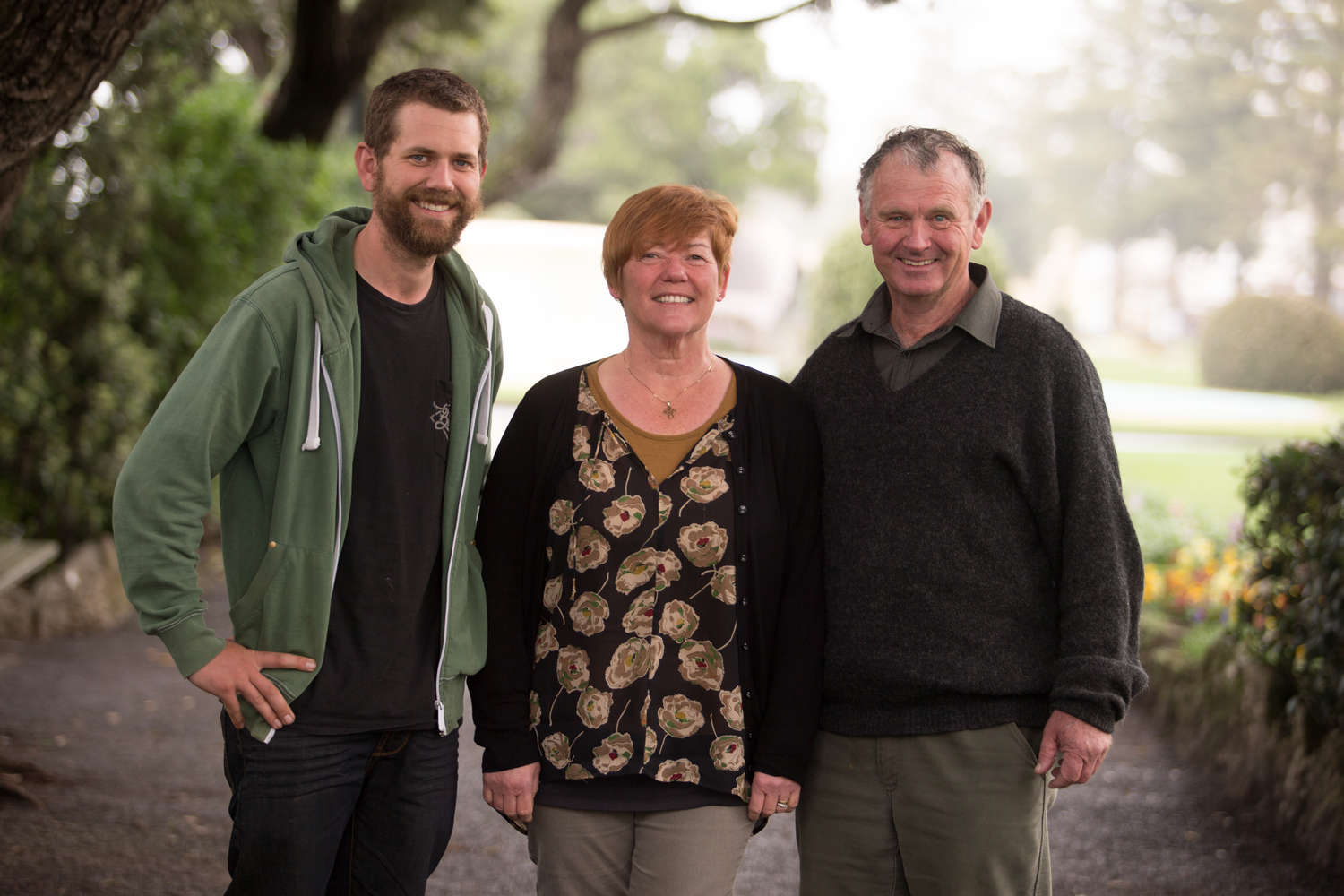
Trevor, Julie and their sons, Fraser and Stephen farm at Fordell. They purchase predominantly weaner and 18 month heifers and steers and take through to finishing.
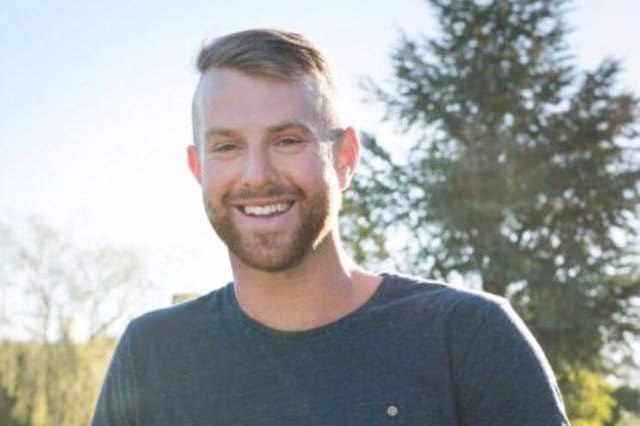
“As a kid I was always told quality over quantity,” says Ryan Cockburn, who co-manages Alburn Farming Ltd. “And that’s exactly what you are getting when you choose First Light meat.”
Ryan has seen the demand for First Light first-hand – he and partner Stevie accompanied a team of First Light management and farmers to the USA in 2018, demonstrating the premium product in stores and meeting customers, butchers and meat managers.
“We got involved with First Light because we wanted to get more reward for the effort we put in to producing our products on-farm, and not to be just part of a commodity line,” he says. “It’s helped our business become more structured. We are able to budget on what we are going to get for our animals due to having a forecasted payment price – we’re not left wondering what we are going to earn for our product.”
Ryan and his grandfather, Alan Tindall, manage their family farm at Seafield, near Ashburton. “Three generations are still involved to some degree,” says Ryan. Their model is mixed arable farming, growing wheat, barley, linseed, pak choy, radish, kale, process pea and sweetcorn. Alongside that, they buy in around 100 First Light Wagyu mixed sex weaner calves, and 50-100 store cattle to finish. “In 2020 we will also winter around 500-500 head of Wagyu cattle.”
Alburn Farming took out the cup for best milling wheat grown in 2019 at the United Wheatgrowers competition. It also won First Light’s Wagyu Supplier of the Year prize in 2018, which is awarded to a supplier consistently demonstrating exemplary farming practices and communication. Ryan says First Light’s values align with their own. “Honesty, reliability, accountability… if you can’t stand by what you do on-farm then you shouldn’t be part of First Light. First Light is a team – a big family – and if one person lets things slip it affects the whole group. We enjoy working together as a group to get the best results for the group. Profit is not the main driver – but it’s a by-product of passionate people wanting to do better.”
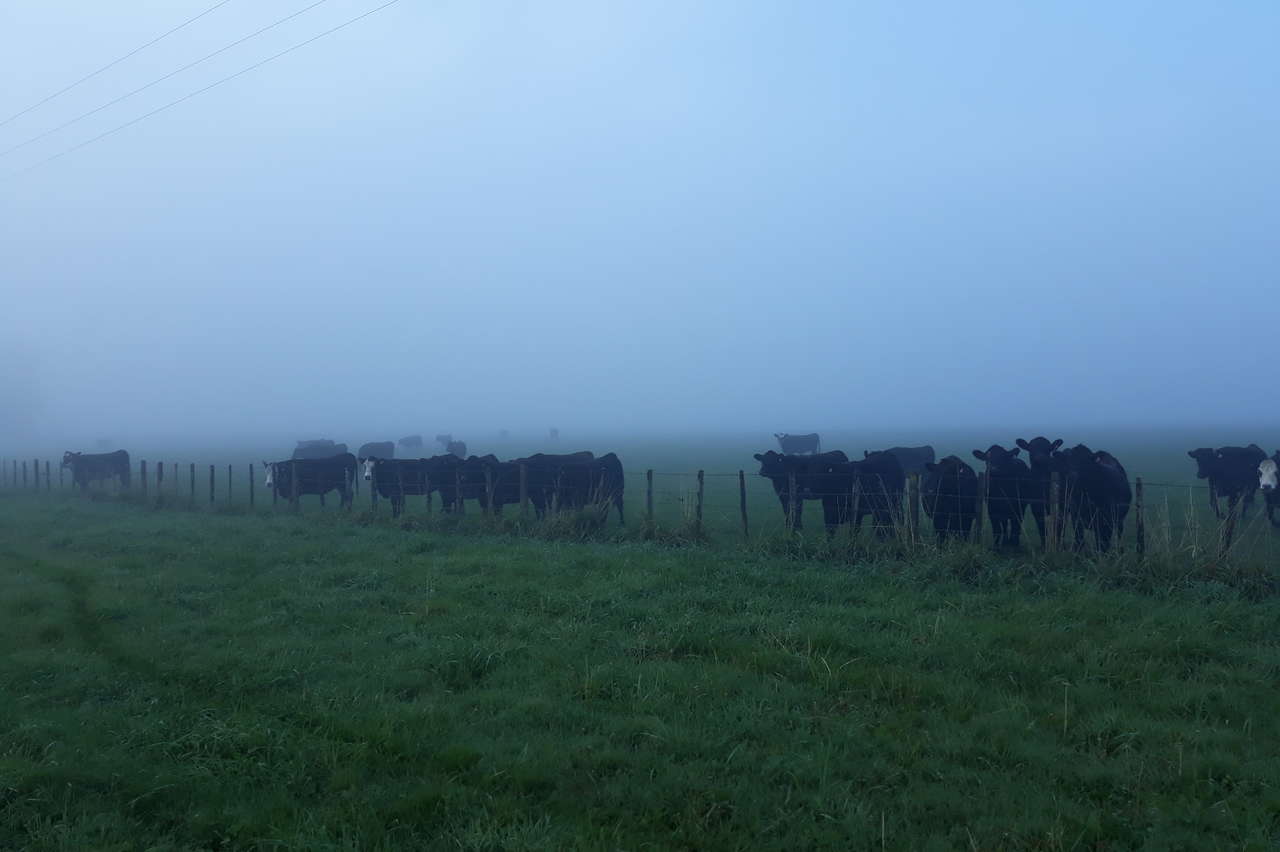
Simon and Duncan Campbell along with their families’ farm in Opiki, Manawatu. They currently take Wagyu * Angus and Wagyu * Dairy weaners through to finish.
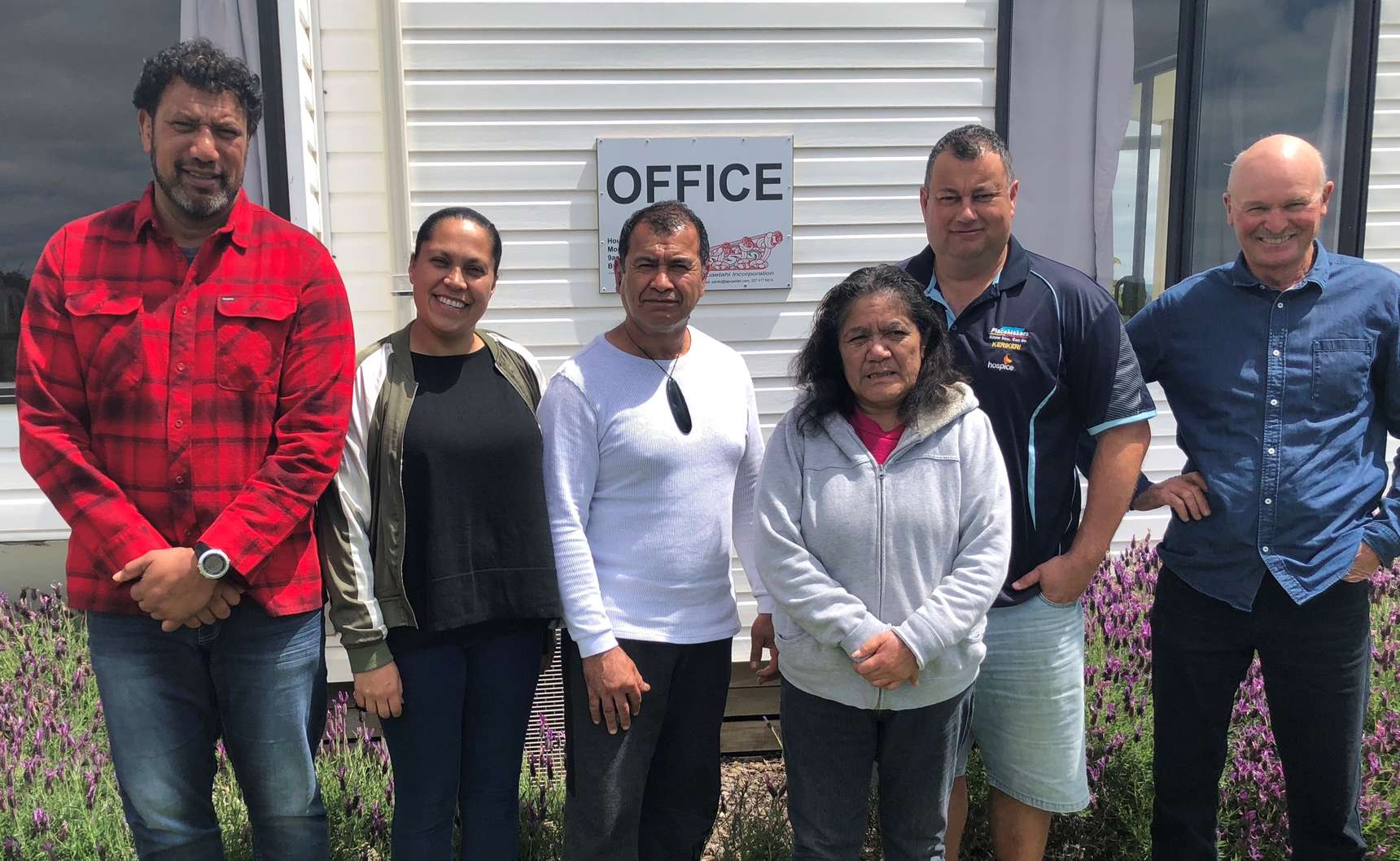
Tapuaetahi Incorporation, a kaupapa Maori entity, is a coastal block set in the beautiful Bay of Islands. Tapuaetahi has 365 shareholders that are served by a Committee of Management of six.
Breeding Angus for around 50 years, they started their journey with First Light nearly five years ago. After acquiring another 194 ha block in early 2016, they are now working towards breeding and finishing 150 Wagyu/Angus animals annually. The farming operation works in well with the Incorporation’s gated community that comprises of 51 beach front leased properties.
Our focus is to ensure that the whenua(land) and moana(adjacent coast) is preserved for our tamariki mokopuna ( future generations) so, Kaitiakitanga is very important. This is challenging in farming, especially with a small coastal operation that has very high land values. This is where the First Light initiative is seen as a good fit. Through cross breeding Wagyu, we are able to render the best return while upholding our values through less intensification and a focus on animal welfare. All this produces a high quality animal for First Light Foods that we proud to associated with.
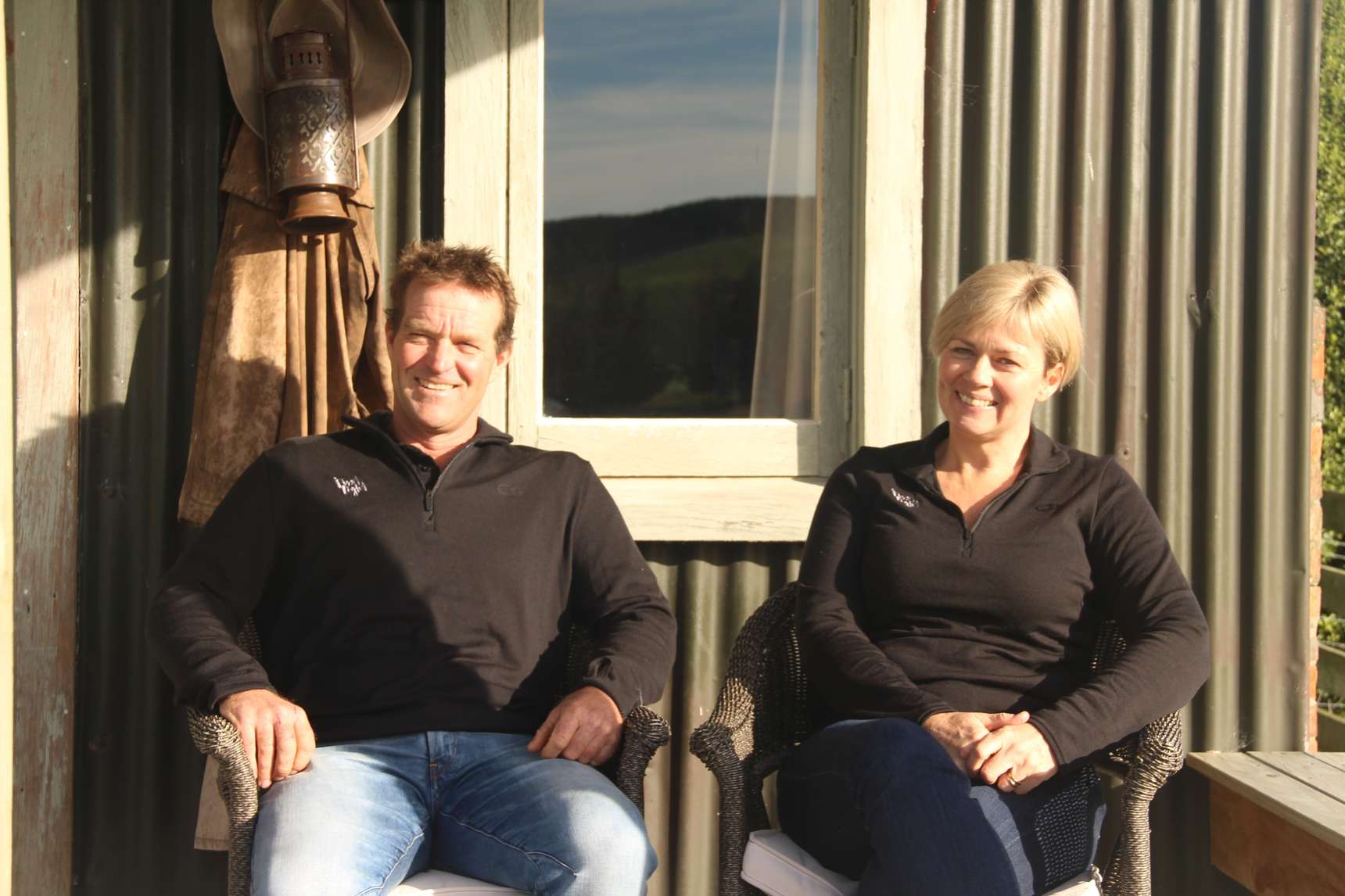
Consistency and simplicity are two things Southland farmers Mike and Kirsty Bodle love about being part of the First Light Wagyu programme.
Mike and Kirsty moved to Southland from Waikato in 2006 and now have a 450-cow dairy farm at Hokonui as well as breeding and rearing (to store) 350 First Light Wagyu cattle. On the dry stock side, they’d been looking for something to spread risk but they were also for something with X factor. First Light offered a guaranteed price contract 12 months out, giving them solid budgets on both sides of the business, Mike says.
“First Light also had the point of difference with the marbling, GM free and antibiotic free, and their markets.”
The Bodles aim to achieve growth rates of 0.7kg a day to store. Weaner calves are wintered in Hawea and then sold to a finisher at 20 months so the farm doesn’t have to carry them through a Southland winter. The couple has adopted a low intensity farming model, dropping the stocking rate to lessen their environmental footprint and improve production per animal.
“They’re happier animals and we have happier staff too with the right stocking rate,” Kirsty says.
The Bodles have recently returned from a trip to the United States with First Light Wagyu. Mike says the Americans are aware of the marbling, but find it has a much stronger flavour than the grain-fed beef they’re used to. “They were amazed the only seasoning we added was salt.”
Mike and Kirsty know they are custodians of their land and treat it accordingly. They’re also proud of it and love visitors coming to stay in their B&B cottage. “They love the green grass and walking up the lane and the stock coming up to them. If they can touch an animal, that’s amazing to them,” Kirsty says.
The couple have loved their time in Southland. They’ve had a long involvement with the Central Southland Swimming Club and also established the Southland Board Riders Club (surfing) in Riverton, where they have a crib for valuable time off farm.
Their two daughters have grown up working on the farm and are still an integral part of the family business.
“We wouldn’t have made it without the girls and that’s what family farming is all about.”
There are a few extras in the family now… a Jersey cow known as Poppie, a premature white-face cow known as Lucky and Miss Wagyu, #319, one of the original hand-reared Wagyu calves.
“She has a cheeky nature and walks around like she’s a supermodel,” Kirsty says, laughing.
“She’s our mascot now. She’ll never go.”
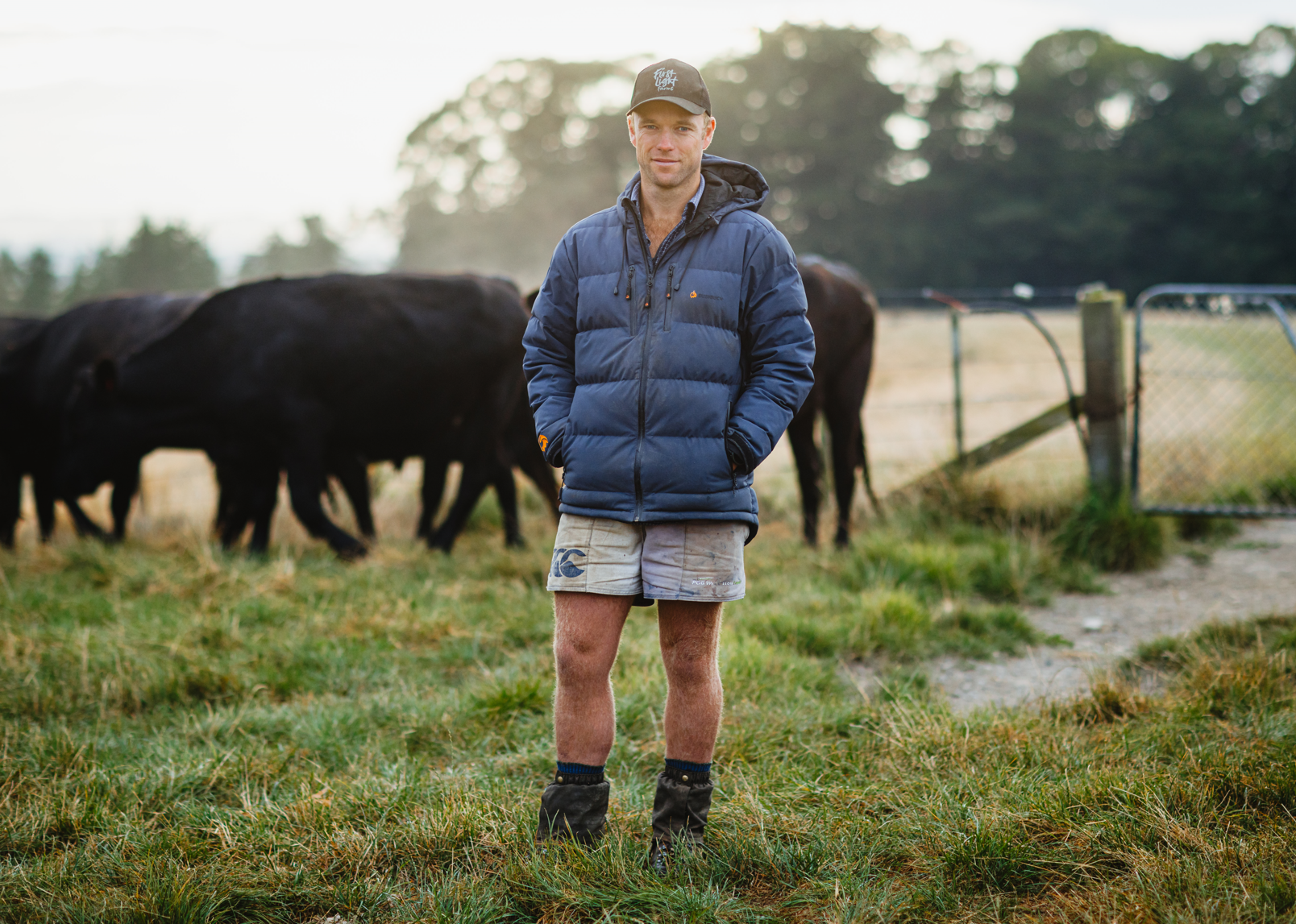
Forest Gate is a 340ha deer, sheep, cattle and cropping property which is being farmed in its 4th generation by our family. Duncan Holden purchased the property in 1934, with Peter Holden introducing deer during the late 80’s. Forest Gate is currently being farmed by Duncan & Wendy Holden in conjunction with their son and his wife, Tom Holden & Bex Cave.
Forest Gate is a finishing farm with all of our livestock brought in to finish. Our deer are breed on another Firstlight farm 15mins up the road. We are a majority grass based system , with all livestock being grass fed finished. We use brassica crops to help us get through the tighter periods.
We enjoy farming deer because there is still a lot to learn about them. It’s a young industry which is exciting as we are constantly learning new ways/techniques to achieve better outcomes for both us and the deer.
Its important to us that we farm Forest Gate in a way that won’t affect future generations from having the opportunity enjoy farming deer and they lifestyle that brings!
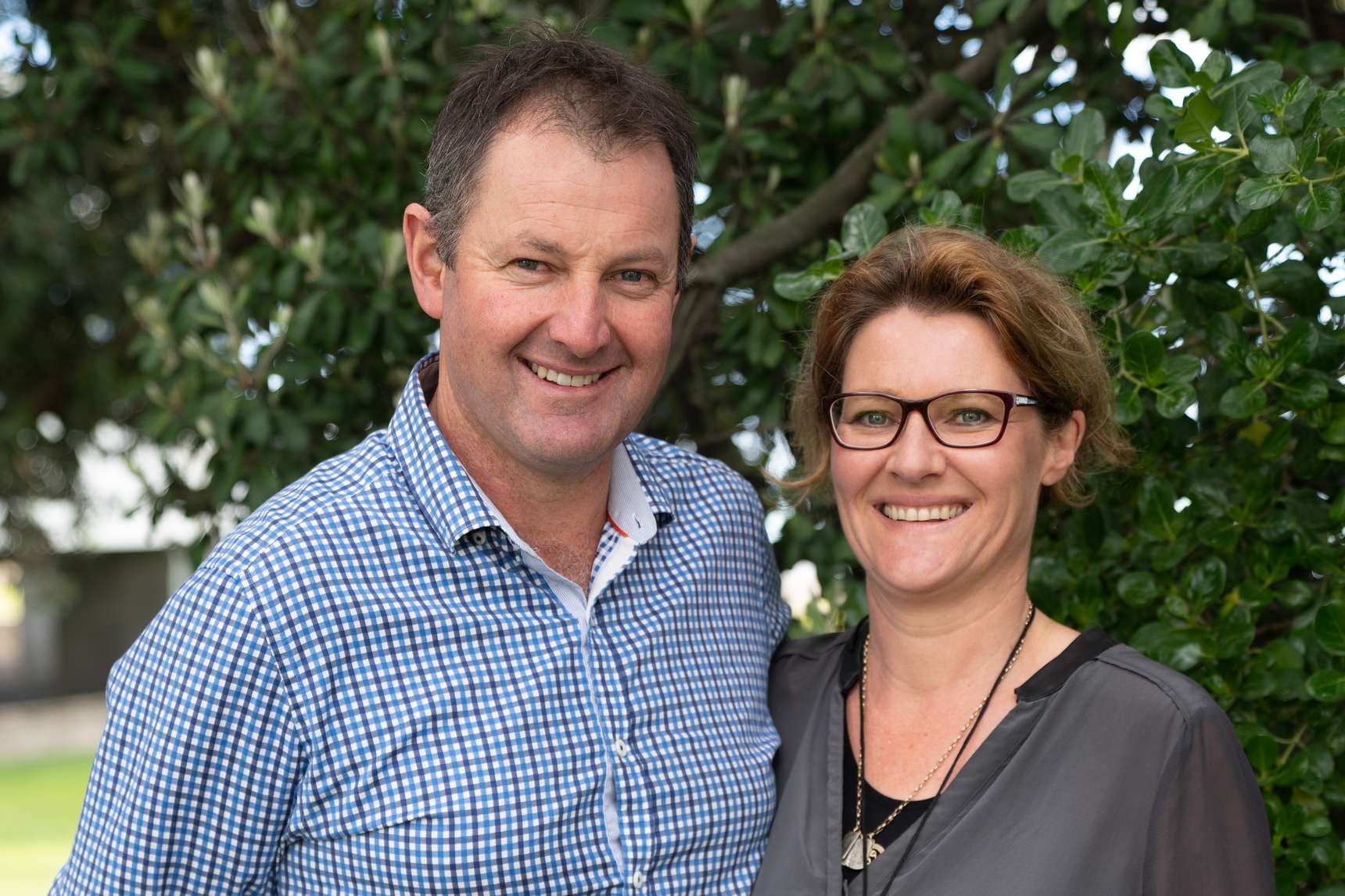
Peter and Joc Kinney have been farming at Culverden in North Canterbury for the past 20 years. Their four sons – Charlie, Sam, Alex and Max – are the fifth generation to live on Ballindalloch.
Twelve hundred cows are milked on the 326ha site, which has a 220ha dairy support block down the road. Adjacent to that is Beechwood, a 275ha beef farm running between 1300 and 1400 cattle, of which 35% are Wagyu. All the farms are under centre pivot irrigation with water supplied through the Amuri Irrigation Company, which acts as a collective and audits their on-farm environmental plans.
The Kinneys initially bought Beechwood to convert to dairy. But Peter says the climate was changing and they also wanted to diversify the farming operation. It has also ensured the ongoing involvement of the boys, two of whom are boarders in Christchurch with the younger two at the local area school.
“Having the boys involved is very important to us,” Joc says, “feeling that connection with the land and the stock and with what we do.”
In 2015, Peter and Joc bought some Wagyu weaners.
“We heard about them through word of mouth. We were looking at different beef options and Wagyu came out as an option that gave us a bit of diversity within the beef operation,” Peter says.
In the following years, they came to understand more about First Light as a company and its aspirations.
“We liked what First Light was all about – a leading company doing innovative things, controlling the process from the growing through to the sale.”
Joc says they also liked that it was New Zealand-owned and how it evolved.
“It has a good feel about it. It involves other farming families. Some are quite different to us but we’re all on the same page. It does actually feel like a family and I really like that,” she says.
“Plus it is front-footing and leading all those customer-driven aspects such as grass-fed, antibiotic free, non-GMO, Certified Humane and the whole animal welfare side. Rather than waiting for things to happen, First Light was taking a leading step in that regard.”
The dairy herd is the breeding platform to supply the beef animals for the beef unit, Peter says.
“We’re using sexed semen over our best dairy cows to generate our replacements which gives us the ability to use more beef semen over the rest of the herd cows. Wagyu fits in there strongly in that we mate our first-calving yearling heifers to Wagyu where otherwise they would probably be mated to Jersey and their calves bobbied. The Wagyus are easy calving and this captures value from those animals that would otherwise be lost.”
The Wagyu calves are mostly reared on Beechwood by the dairy team. They are grass fed on irrigated pasture and wintered on fodder beet, pasture and silage.
“We enjoy working with the Wagyu cattle – their temperament is very good and they are relaxing to work with. We enjoy the challenge of getting the best out of these cattle by striving to achieve high marble scores.”
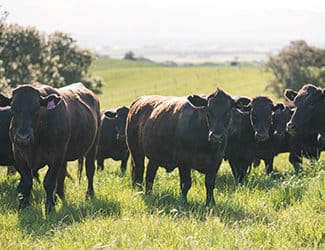
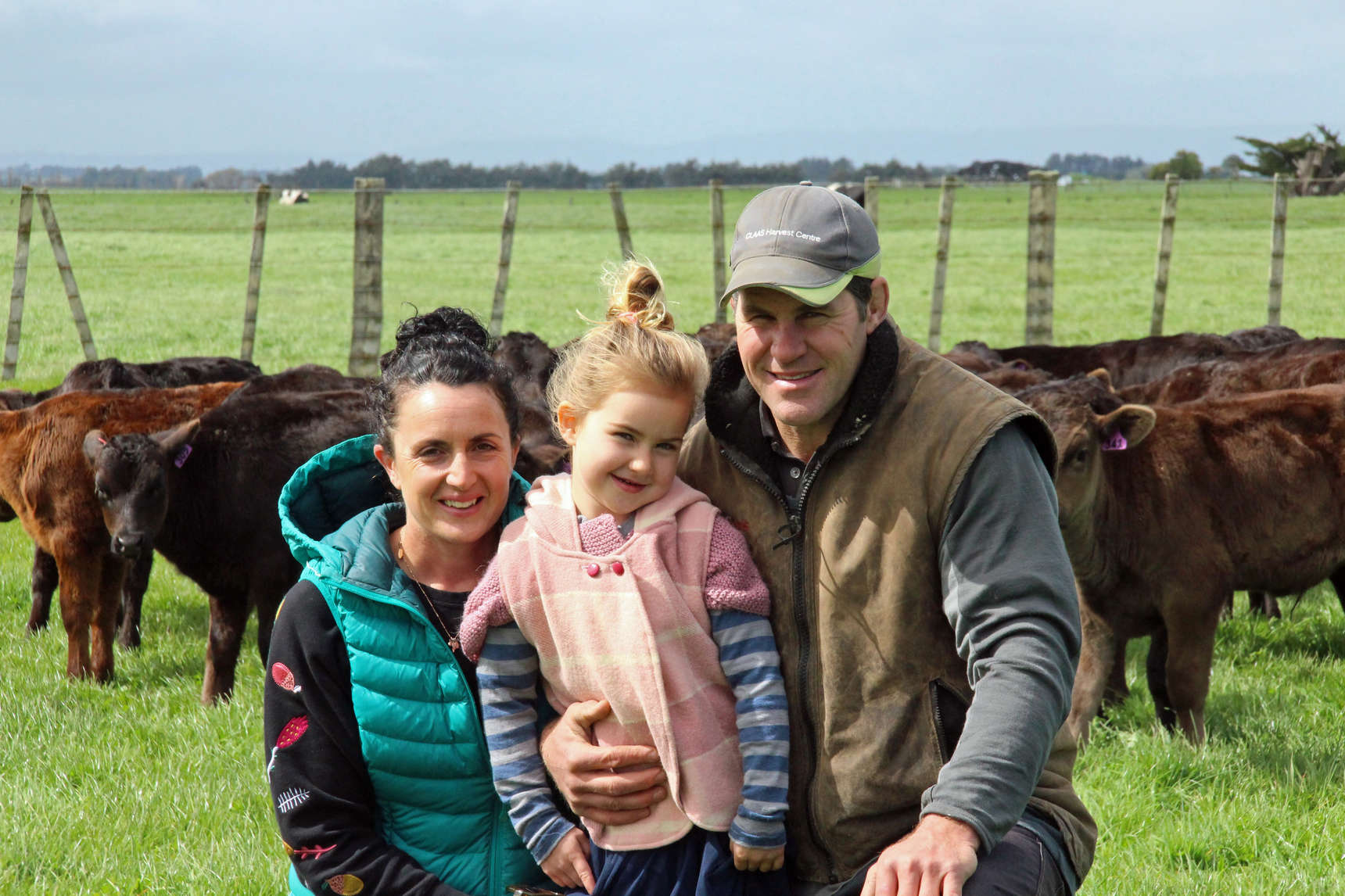
Grant and Kate Webb’s farm backs onto the beautiful Rangitikei River between Bulls and Sanson, about 20 minutes west of Feilding.
Their original farm is a 155ha (effective) beef property and in June 2017 they added a neighbouring 250ha dairy farm; this has a manager looking after 600 cows with autumn and spring calving.
The two properties are run under the same partnership, but Grant takes the dry stock and heifers onto the beef farm for grazing.
“We have a ‘grass factory’ of approximately 400ha and try to utilise every square metre of grass the best we can,” he says.
He has a mixed bag of beef options on the farm, which gives the Webbs diversity in both market and price, as well as added flexibility. There are two age groups of everything – 120 Friesian bulls, 120 Wagyu steers and heifers and about 80 white-face Herefords.
“The Herefords are our safety valve in case the season is tough or something else happens. We don’t want all our eggs in one basket so we’ve diversified to have both dairy and beef options.”
Under the First Light Wagyu system, the Webbs are breeder finishers.
“We live next to my parents’ runoff, which is 60ha, where I look after their 130 Friesian heifers. We put them all to a Wagyu bull and take that progeny and rear them on the beef block and take them through to finish.”
Kate helps with the calves where she can, but is busy with their three children – Leo, Cruz, and Emmi – and teaches part time.
Grant says it was talking to an old school friend, Scott Linklater, about Wagyu that first got him involved with First Light.
“He said they were a good beef animal and I was looking for options to stock the beef farm, as opposed to buying older stock. It was such a waste to put those Friesian heifers to a Jersey bull and just get bobby calves. I wanted greater sustainability, which we have; there is value in the calves and I get a steady supply of stock for the beef unit.”
The Webbs are a relatively closed operation.
“All progeny are taken from my parents’ dairy farm 10 minutes away, and reared through to finishing which allows us to eliminate bobby calves. We’re not as susceptible to the market. We know what we’re getting well in advance.”
Grant enjoys being part of the First Light family.
“Their Spring Muster is really well done. It’s a good confidence builder, getting people together talking about Wagyu, especially the newer ones like us talking to the farmers who have been involved for longer. It’s a great concept. Everyone seems to have buy-in and talks about how best to grow the Wagyu and what strategies we need to employ to add value and produce a high-end product.
“They’re always looking to do things better… and so are we. We are always trying to get more information and find out how other people are doing things. That’s one of the great things about being part of the First Light programme.”
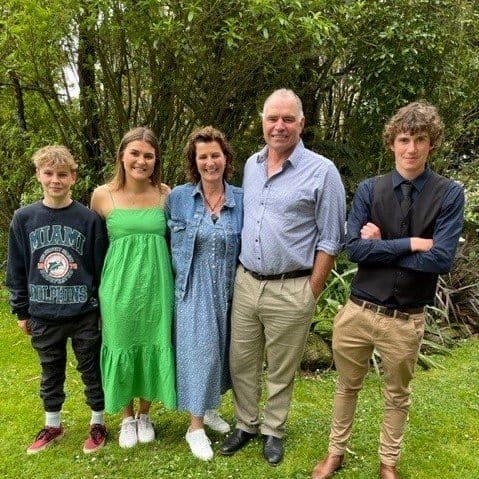
Westward Downs farm Wagyu heifers at their property at Te Uku – a beautiful property on the Raglan harbour. The Wagyu steers are run at their home property about an hour north near Ngaruawahia.
